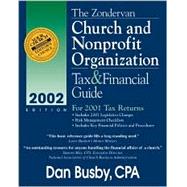| Special Index for Church Treasurers | v | ||||
| Introduction | viii | ||||
| Recent Developments | 1 | (190) | |||
|
11 | (16) | |||
|
12 | (6) | |||
|
18 | (9) | |||
|
27 | (24) | |||
|
28 | (1) | |||
|
29 | (1) | |||
|
30 | (4) | |||
|
34 | (7) | |||
|
41 | (2) | |||
|
43 | (3) | |||
|
46 | (1) | |||
|
46 | (3) | |||
|
49 | (2) | |||
|
51 | (20) | |||
|
51 | (1) | |||
|
52 | (3) | |||
|
55 | (3) | |||
|
58 | (9) | |||
|
67 | (1) | |||
|
67 | (4) | |||
|
71 | (22) | |||
|
71 | (5) | |||
|
76 | (1) | |||
|
76 | (4) | |||
|
80 | (1) | |||
|
81 | (3) | |||
|
84 | (8) | |||
|
92 | (1) | |||
|
93 | (10) | |||
|
93 | (2) | |||
|
95 | (1) | |||
|
96 | (5) | |||
|
101 | (2) | |||
|
103 | (36) | |||
|
103 | (7) | |||
|
110 | (3) | |||
|
113 | (5) | |||
|
118 | (10) | |||
|
128 | (1) | |||
|
128 | (7) | |||
|
135 | (4) | |||
|
139 | (34) | |||
|
140 | (1) | |||
|
141 | (2) | |||
|
143 | (1) | |||
|
144 | (6) | |||
|
150 | (2) | |||
|
152 | (4) | |||
|
156 | (6) | |||
|
162 | (11) | |||
|
173 | (18) | |||
|
173 | (1) | |||
|
174 | (3) | |||
|
177 | (7) | |||
|
184 | (7) | |||
| Citations | 191 | (5) | |||
| Index | 196 | (4) | |||
| 10 Biggest Tax Mistakes Made by Churches and Nonprofit Organizations | 200 |








